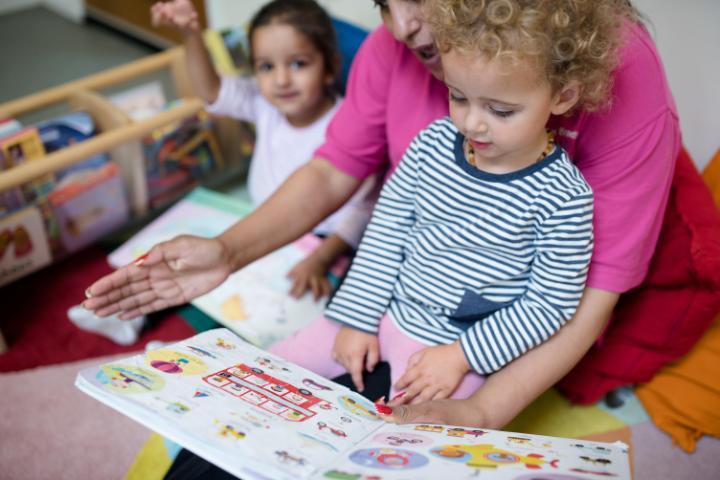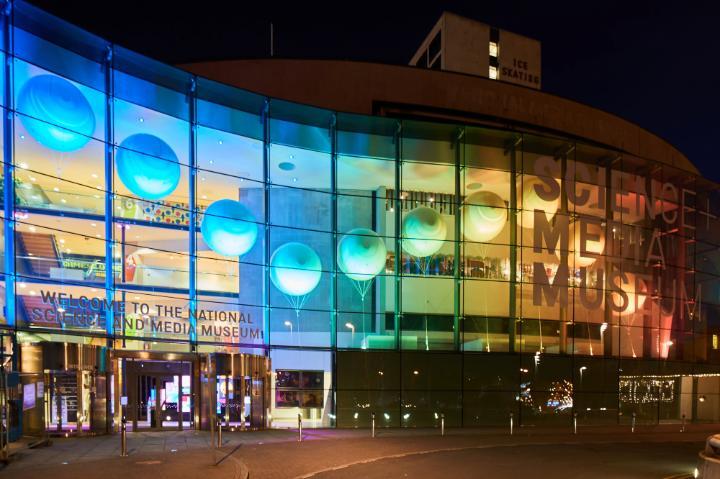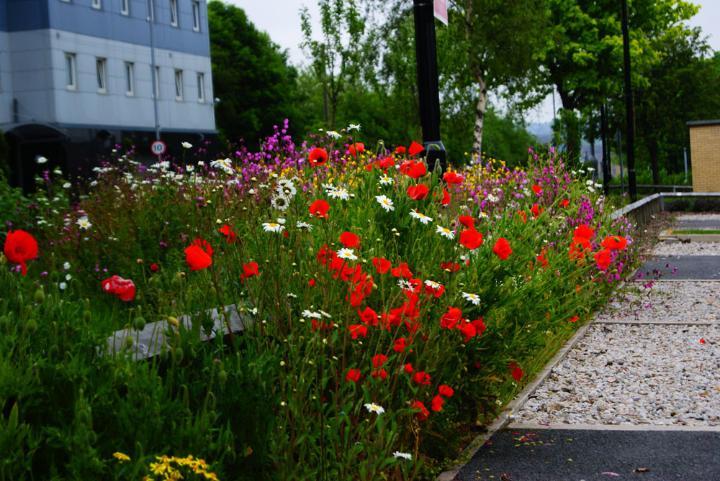Nursery education & development
How we deliver our curriculum
All children at the University of Bradford Nursery receive high-quality, early education.
Our approach is to build on children’s interests in the moment. This allows them to explore and develop in a way that extends their curiosity, providing them with opportunities and new experiences to further their development and knowledge.
Our experienced and qualified staff team are trained to scaffold children's learning, there and then, through quality interactions.
As an Ofsted registered early years setting, we follow the 'Statutory Early Years Framework' to ensure that children develop well and are kept healthy and safe. We use the 'Birth to Five Matters' as a supporting document to help promote children’s development across seven areas of learning.
For children aged 0-3 years, we focus upon the 3 prime areas of development;
- Personal, Social and Emotional Development
- Communication and Language
- Physical Development
For children aged 3 – 5 years, we continue to promote learning across the prime areas alongside the 4 specific areas of learning;
- Mathematics
- Literacy
- Understanding of the World and Expressive Arts and Design
By following ‘in the moment’ planning, we introduce new vocabulary by asking open-ended questions and engaging in sensitive interactions. This encourages children to be independent and curious, promoting active learning and critical thinking.
Play is essential for children’s development; building confidence as they learn to explore, relate to others, set their own goals, and solve problems. Children learn by leading their own play, and by taking part in play which is supported and guided by adults.
We know and celebrate that every child is unique and they come to our nursery with different experiences. Each child will learn and develop at different rates and paces and we aim to recognise, tune in and build upon this through everyday communication, interactions, and routines.

Additional support
We understand that at times, children may need some extra support in a particular developmental area. We offer 5 minutes daily time sessions to children who require support for their communication and language skills. This involves a staff member offering one-to-one support during the daily routine. Staff will use early interaction techniques to support, which include sitting at the child’s level and encourage eye contact.
We have a Special Educational Needs Coordinator (SENCo) within the setting who works directly with outside agencies liaising with other professionals such as GP’s, Health Visitors, Paediatricians, Speech and Language Therapists, Oral Health Teams and Access and Inclusion Officers as part of multiagency working.
Through working together, we are able to provide more individualised and tailored support for children, if required, to ensure that all children have the support they need to progress well.
Assessment
Our practitioners use photographic collages and monthly written summaries to document children’s progress and new interests through the secure online journaling system, Tapestry. Over time this builds up a record of your child's experiences during their time with us. Each term we produce summary reports for each child in their key group, which outlines developmental progress and any areas where support may be needed.
We use the ‘Birth to Five Matters’ document as a guide, to track specific learning outcomes, alongside their knowledge to assess children’s current developmental levels. Our practitioners work closely with parents and carers to build relationships and understand each child's home learning to feed into reports and assessments.
Gaps in development
We are committed to reflecting on our provision, and considering what areas are working well and if there are any areas for improvement. As part of this process, we engage in termly cohort tracking for each unit to assess whether there are any gaps in learning and consider ways to develop this. Each unit will assess provision and look for specific ways to promote development within those areas.
Parents and carers are the primary caregivers, and we pride ourselves on developing positive partnerships, working together to promote development holistically and provide a consistent approach between the home and nursery environment. As part of this, we offer home learning challenges which address specific areas for development that term, derived from the cohort tracking data. We also offer home visits, parent committee meetings, parental workshops and stay and play sessions to try to encourage parental involvement across all aspects of nursery life.
Transitions
Transitions play an important role throughout the early years and beyond as children encounter new experiences and learn to adapt to changes within their lives.
Transitions can be viewed as a process or journey and it can take time to adapt to new faces, environments and routines. As such, we feel it is important not to rush transitional periods and allow children to have time to get used to their new environments at their own pace.
There are various transitions that a child may encounter during their early education such as:
- Settling in – When a child first attends the setting
- Room to room transition – When a child moves from one room to the next
- Other settings – When a child attends two settings or moves from one setting to another
- Nursery to school transition – When a child moves on to Reception
We believe that transitions play a key role in providing children with the best start in life for their early education. We engage with parents/carers, other education providers and other professionals to support these transitional processes.
Children achieve exceptionally well across all areas of their development, in preparation for their future learning and eventual move to school.
Ofsted report, September 2019
Outings
We aim to provide children with experiences throughout their journey with us at Nursery, enhancing their cultural capital. We believe it is important to ensure all children who attend our nursery are equally exposed to the wider community opportunities. Our outings locations include:
- National Science and Media Museum
- Local parks and nature walks
- Library
- Animal farm
- Airport
- Bus and train station
- Local places of worship
- Local supermarkets
All outings are risk assessed and ratios are maintained, ensuring that there are always experienced staff within the group.

As we are a University Nursery, we believe it is important for our children to have experiences that support their development within the University campus, including visits to our:
- Hedgehog reserve
- Beehives
- STEM building (Science, Technology, Engineering and Mathematics)
- Herb gardens
- Areas to hold events such as Easter egg hunt, teddy bears picnic, Graduation and Christmas concert

